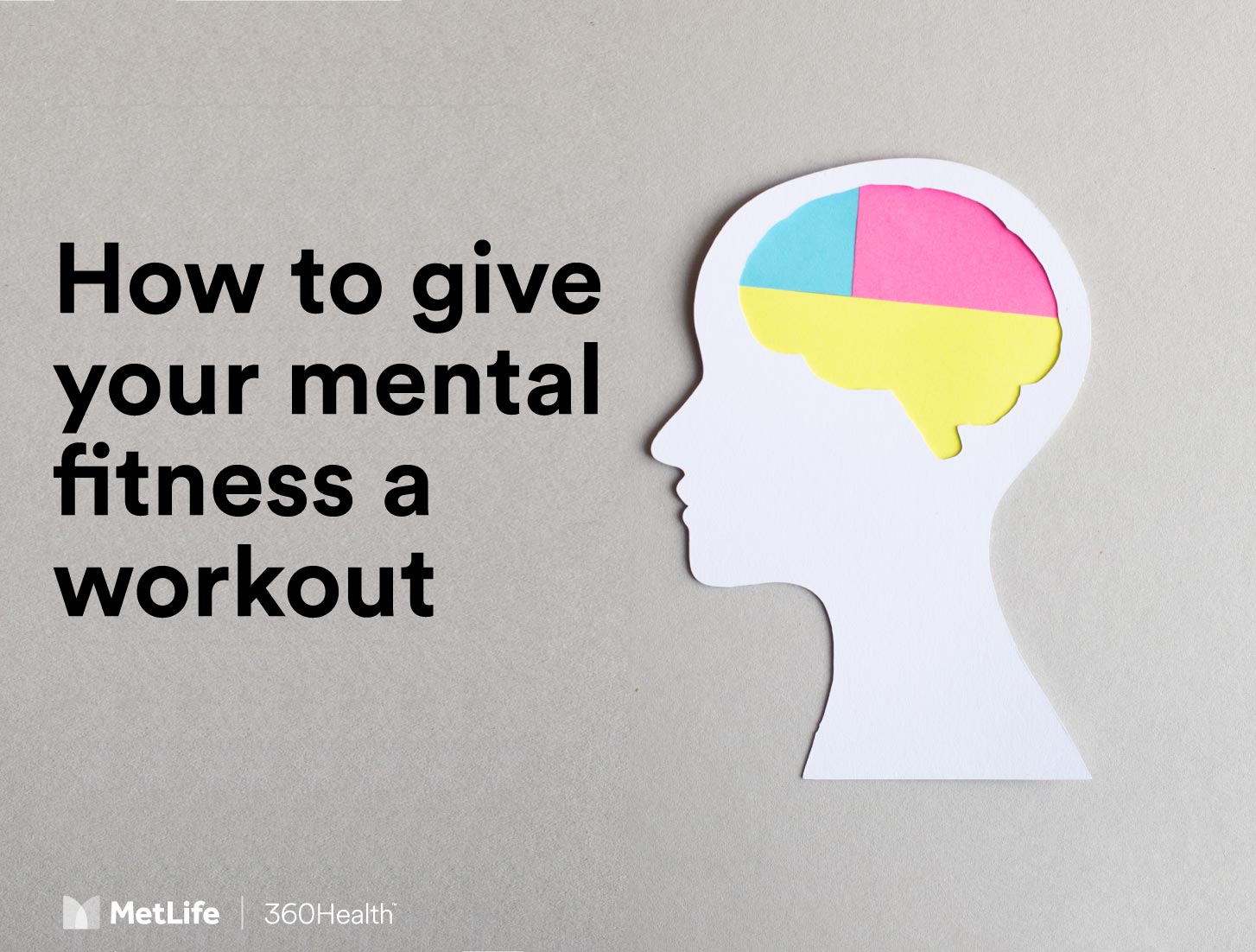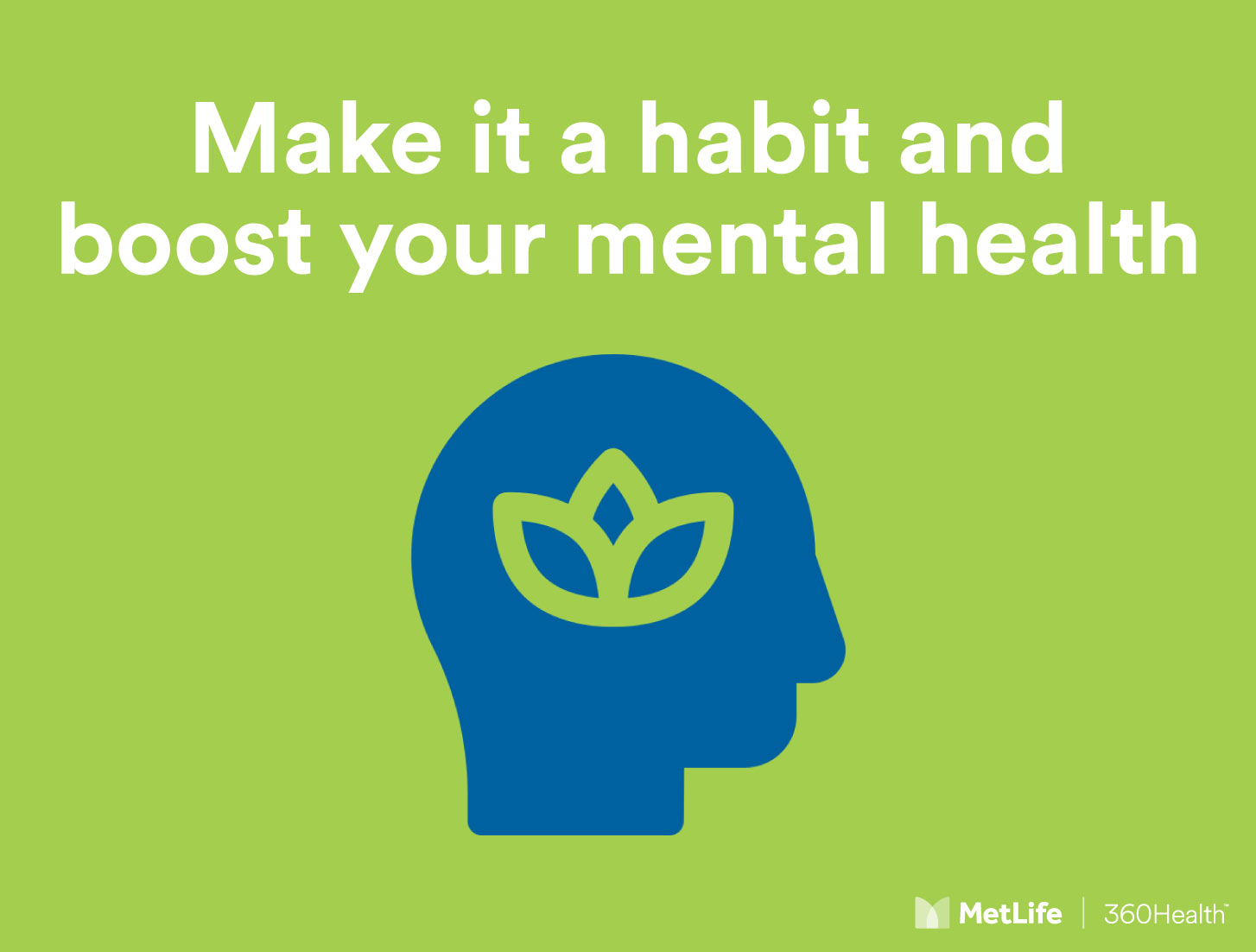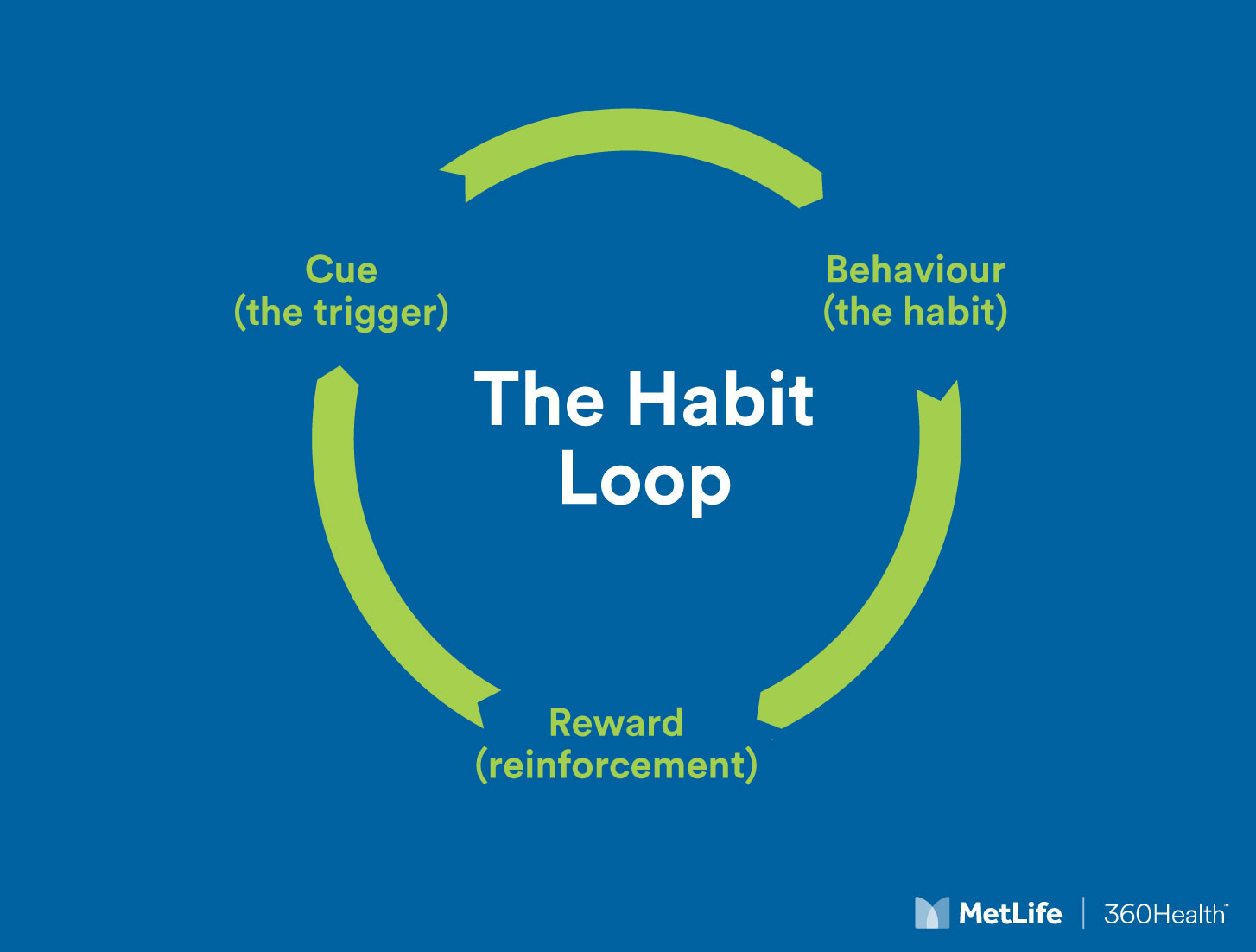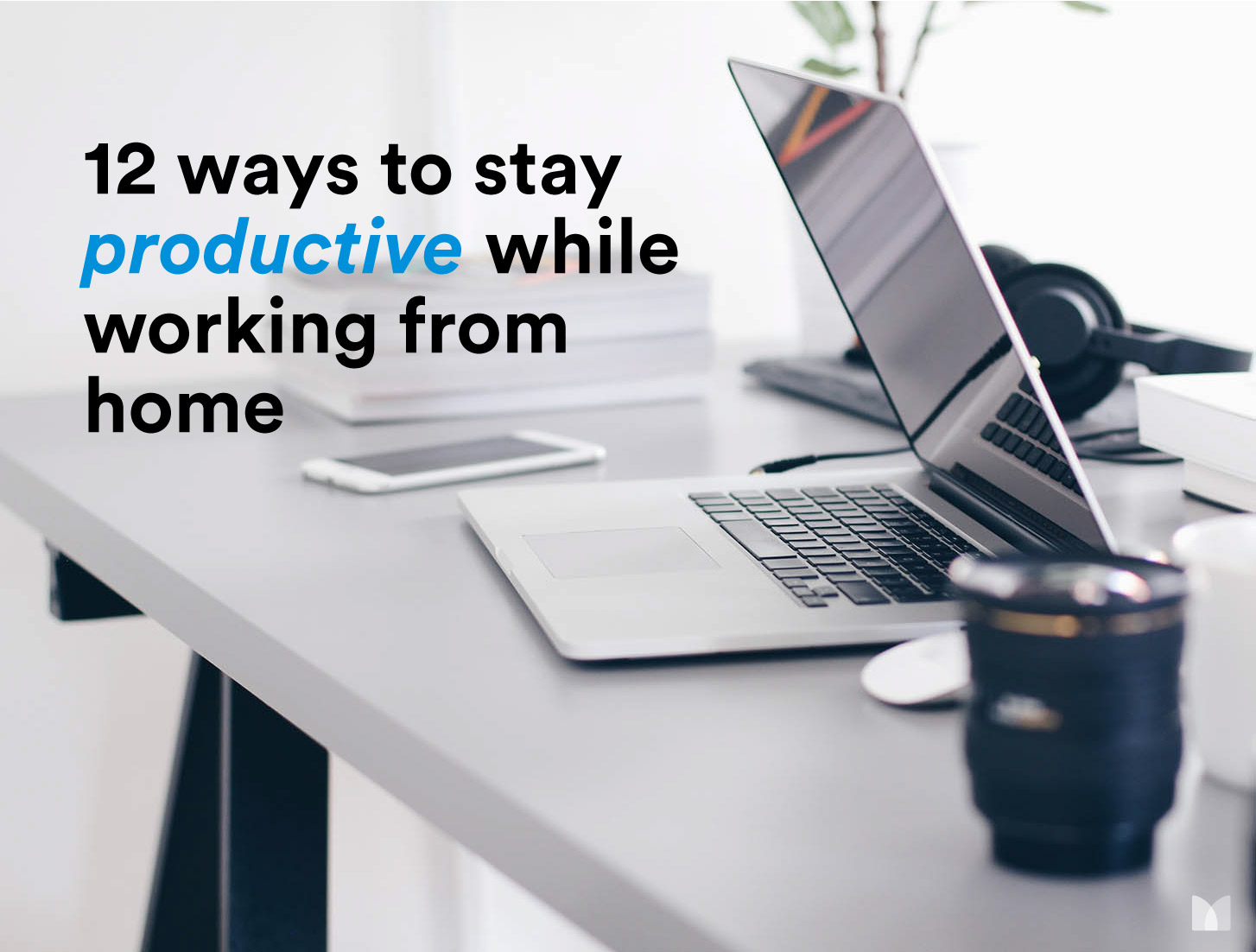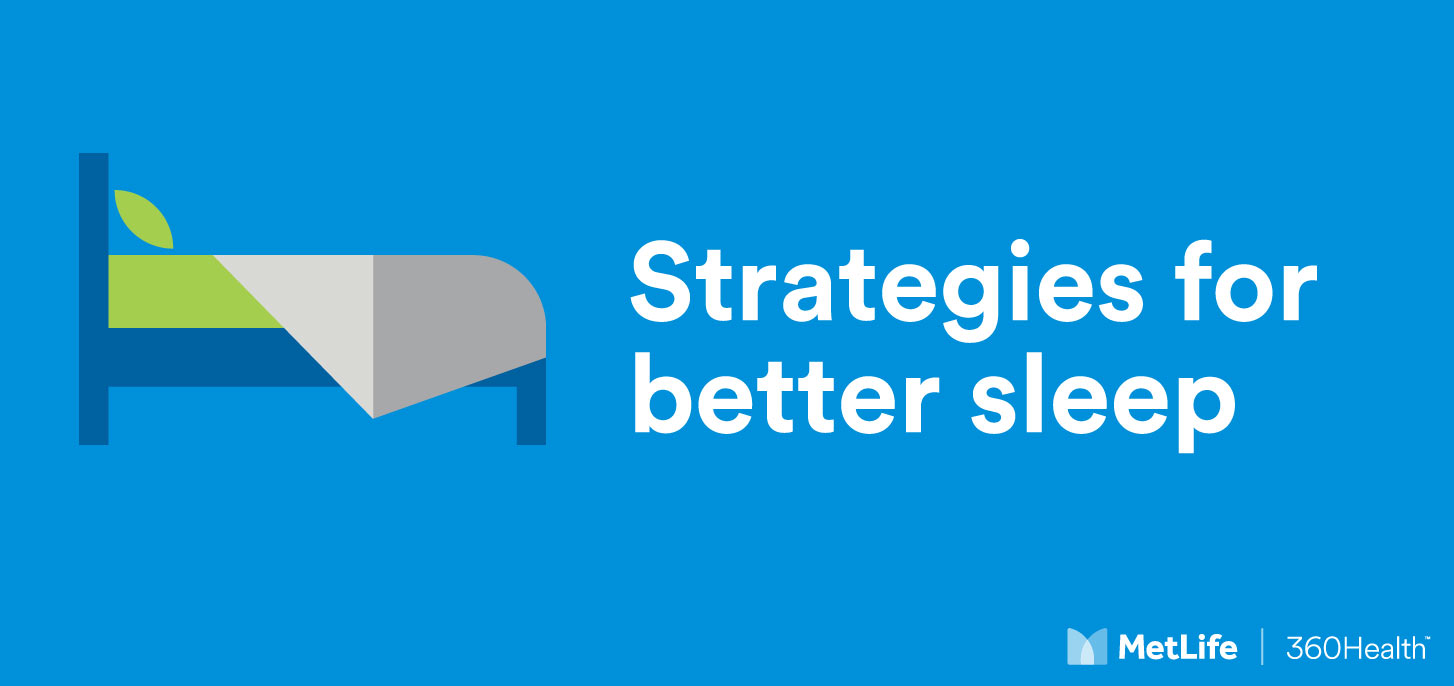
Our MetLife 360Health "Habits How-To" series features tips, tricks, and activities to help you establish healthy habits and maintain them in the long run.
When our sleep is poor, or we cannot get enough sleep, we may not function normally during the day when awake. When it comes to mental health, good sleep, a healthy diet and exercise are all critically important. Inadequate sleep can make our feelings of anxiousness and stress seem worse.
Sleep Helpers
- Consistent routine – Go to bed and wake up at regular times each day to help set your internal body clock.
- Relaxation practices – Explore techniques like “box breathing”” to help you relax.
- Exposure to daylight – Reinforce natural rhythms that help us feel sleepy at night.
- Soothing sounds or music – Try a noise machine or fan to block other sounds.
Sleep Blockers
- Distractions in the bedroom – Hand-held devices and laptops not only keep you up past your bedtime, but they also emit blue light that may disrupt sleep.
- Too much light – Darkness boosts melatonin, a hormone essential for good sleep.
- Caffeine – Consuming caffeine within 6 hours of bedtime may interfere with the quality of your sleep.
- Too hot or too cold – Ideal sleeping temperature for most people is 15–19°C
Habit Strategies for Better Sleep
- Interrupt the habit loop - If your habit is to scroll online at night, eliminate the cue by leaving your phone outside of the room at a set time at night.
- Experiment with rewards - Explore if a new cosy pair of pyjamas or a good book would help get you into bed on time.
- Create routines - Have a calming down routine at bedtime and do it the same every night.
- Track the habit - Use a sleep tracker. Record bedtime and sleep duration.
- Evaluate your barriers - Are any of the “sleep blockers” getting in your way? Which ones can you address?
Find out more about MetLife 360Health.
